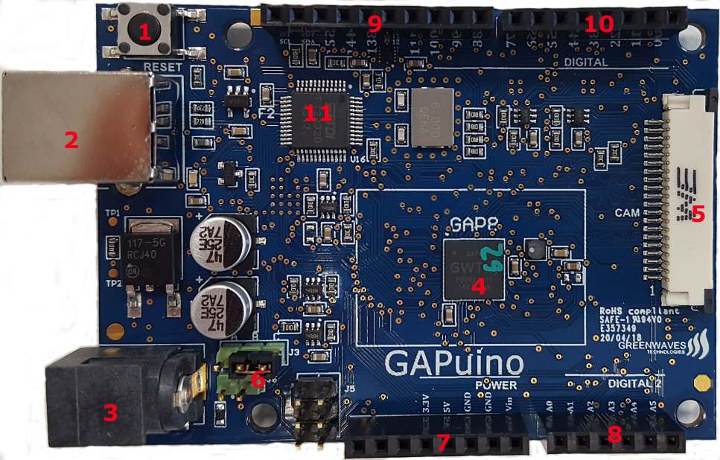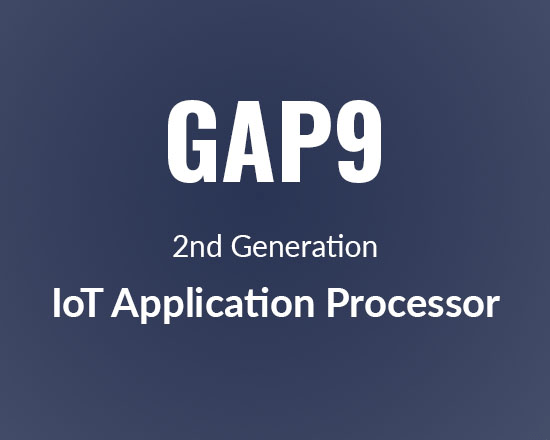GreenWaves Technologies GAP8 multi-core RISC-V microcontroller was introduced last year for artificial intelligence (AI) at the edge at ultra-low power consumption. GAP8 AIoT SoC was shown to perform inference at 3.7mA against 60mA for the same workload on STM32F7 Arm Cortex-M7 MCU.
The company has now expanded its GAP IoT application processor family with GAP9 that delivers five times lower power consumption compared to GAP8 microcontroller while enabling inference on neural networks 10 times larger.
Greenwaves GAP9 will bring machine learning and signal processing capabilities to (coin cell) battery operated or energy harvesting devices such as IoT sensors in consumer and industrial markets, wearables, smart building, smart farming and so on.
GAP9 is said to combine architectural enhancements with Global Foundries 22nm FDX process to achieve a peak cluster memory bandwidth of 41.6 GB/sec and up to 50 GOPS compute power while consuming only 50mW. The increased memory bandwidth (20x over GAP8) allows for greatly improved detection accuracy while analyzing streams of data from multiple different image sensors, microphones, and/or radar chips.
The new processor follows the same GAP architecture as GAP8, but also adds support for 8-/16-/32-bit floating-point arithmetic with support for vectorization, as well as support for vectorized 4-bit and 2-bit integer operations.
GAP9 peripherals include bi-directional multichannel, synchronized digital audio interfaces suitable for wearable audio products, CSI2 and parallel camera interfaces for low resolution, low power cameras used in computer vision. For instance, the chip can process MobileNet V1 neural network with 160 x 160 images using a channel scaling of 0.25 in just 12ms with a power consumption of 806μW/frame/second.
Security features built into the process include AES128/256 hardware cryptography and a Physically Unclonable Function (PUF) unit for unique and secure per-device identification.

Software development will be made on an enhanced GAP SDK already used for GAP8 that includes GAP AutoTiler automatic code generator for neural network graphs and GAPFlow tools for automating the conversion of neural networks from training packages such as Google TensorFlow. Examples will also be part of the SDK such as an open-source Face Identification implementation. The company did not mention any GAP9 evaluation/development board, but one may certainly expect an update to the GAP8-based GAPuino board pictured above.
GreenWaves has yet to publish a product page for GAP9, as they made the announcement just in time for the RISC-V Summit which took place in San Jose, California on December 10-12.

Jean-Luc started CNX Software in 2010 as a part-time endeavor, before quitting his job as a software engineering manager, and starting to write daily news, and reviews full time later in 2011.
Support CNX Software! Donate via cryptocurrencies, become a Patron on Patreon, or purchase goods on Amazon or Aliexpress





